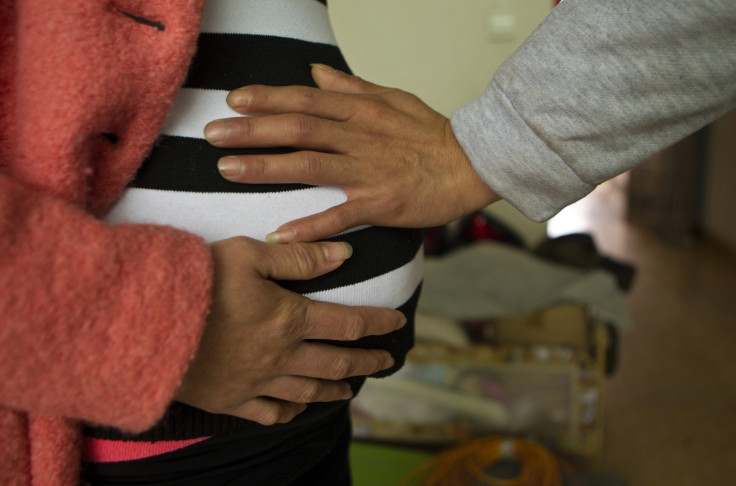Trying To Get Pregnant Or Already There? Here Are 3 Ways You Can Minimize Risk Of Miscarriage

Couples looking to get pregnant take heed: You might want to forego any unnecessary cups of Joe. Examining data on early pregnancy loss, Ohio State University researchers have discovered three lifestyle factors that impact the risk of miscarriage.
Based on results from this new study, both a woman and her partner should avoid drinking more than two caffeinated beverages a day during the weeks leading up to conception. During the first seven weeks of pregnancy, women should continue this practice and avoid more than two coffee or caffeine drinks each day, as the data suggests too much caffeine during this period increases the risk of miscarriage. Finally, women should take a daily multivitamin both before conception and through early pregnancy to minimize their risk of an early pregnancy loss.
“Our findings provide useful information for couples who are planning a pregnancy,” said Dr. Germaine Buck Louis, the study’s first author.
Louis and her colleagues began their study by repurposing data collected by the Longitudinal Investigation of Fertility and the Environment (LIFE) study. The study, which examined the relationship between fertility, lifestyle, and environmental chemical exposure, enrolled 501 couples from four counties in Michigan and 12 counties in Texas between the years 2005 and 2009. Using the LIFE study data, Louis and her team compared lifestyle factors, including smoking, vitamin use, and coffee/caffeinated beverage consumption, among 344 couples who had a pregnancy resulting in the birth of a single child. The researchers focused on the weeks before they conceived through the seventh week of pregnancy.
The researchers used a statistical method they refer to as a hazard ratio to estimate the chances a particular health outcome will occur within a given period of time. For example, when evaluating how a lifestyle factor such as consuming caffeine every day is likely to cause a woman to miscarry over a given time period, a score greater than 1 would indicate increased risk, while a score less than 1 would signify reduced risk.
Of the 344 pregnancies followed by the LIFE study, 98 (or 28 percent) ended in a miscarriage. One factor associated with miscarriage is the mother’s age. The researchers calculate the hazard ratio for a mother being 35 or older as 1.96 (nearly twice the risk as younger women).
The researchers say consuming too many cups of coffee or other caffeine drinks during the preconception period impacts the risk of pregnancy loss. Surprisingly, this is true for both genders at nearly the exact same rate. The hazard ratio for women who drink quite a bit of caffeine every day while they are trying to conceive is 1.74 and for men 1.73.
“The male partner matters, too,” said Buck Louis.
The researchers note past studies show coffee or caffeine drink consumption during the first seven weeks of pregnancy also increases the risk of pregnancy loss and caution women to be careful during this time. However, they are unable to estimate a hazard ratio from the dataset included in the LIFE study.
On the other hand, the team could estimate the reduction in miscarriage risk for women who took a daily multivitamin. During the preconception period, researchers calculate a hazard ratio of 0.45 — this represents a 55 percent decreased risk of early pregnancy loss. For women who continue to take their vitamins during the early weeks of pregnancy the hazard ratio is 0.21 — a 79 percent reduced risk.
Past studies support this finding, the researchers explain, with vitamin B6 and folic acid being of particular importance before and during pregnancy for fetal development.
Commonly, doctors recommend folic acid supplements for all women of childbearing age to reduce the risk of having a child with a neural tube defect. A mother’s good health is of vital importance for all members of her existing and future family.
Source: Buck Louise GM, Sapra KJ, Schisterman EF, et al. Lifestyle and pregnancy loss in a contemporary cohort of women recruited before conception: The LIFE Study. Fertility and Sterility. 2016.
Published by Medicaldaily.com



























